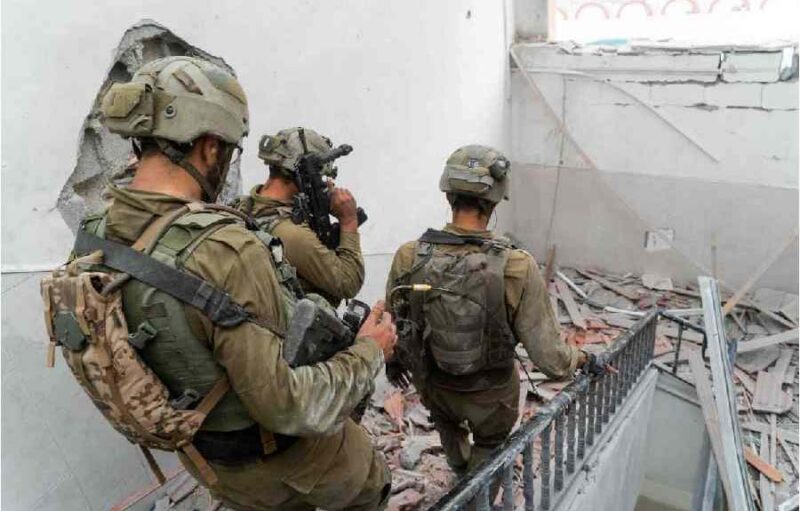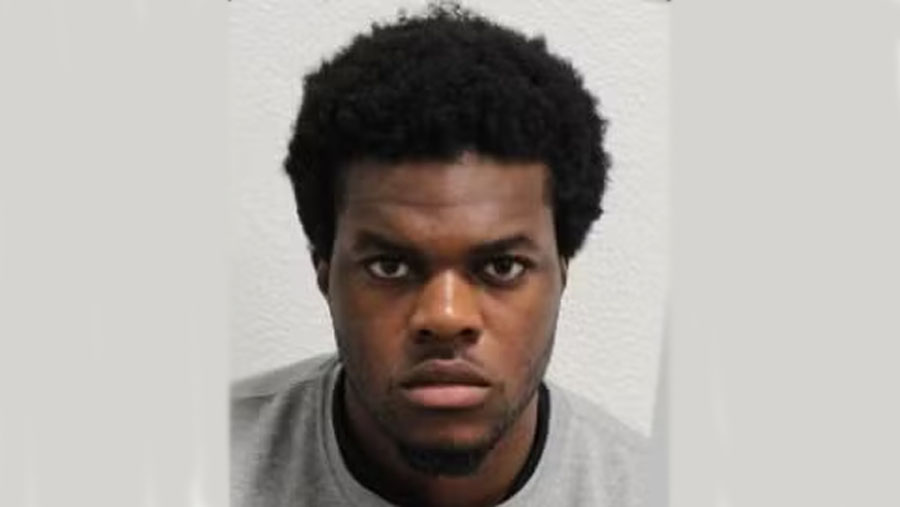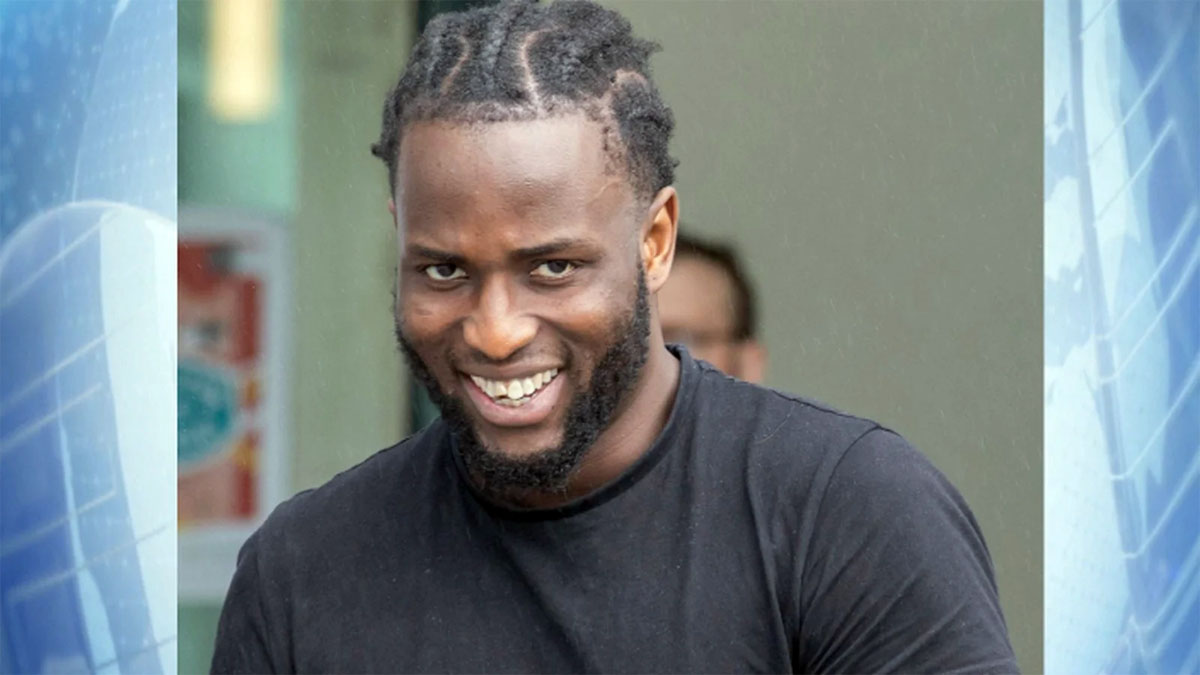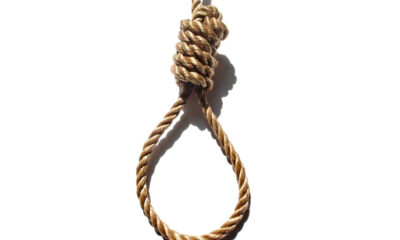International
Israeli military announces first combat death after hitting Lebanon

Israeli military announces first combat death after hitting Lebanon
BEIRUT: The Israeli military has announced its first combat death since launching ground operations in Lebanon this week.
The military said Wednesday that a 22-year-old in a commando brigade was killed in combat in Lebanon.
Hezbollah said its fighters were engaging Israeli forces inside Lebanon on Wednesday, reporting ground clashes for the first time since Israel began pushing into its northern neighbor in a campaign to hammer the Iran-backed armed group.
The Israeli military said regular infantry and armored units were joining its ground operations in Lebanon, a day after Israel was attacked by Iran in a strike that raised fears the oil-producing Middle East could be engulfed in a wider conflict.
An Israeli team commander was killed in Lebanon, the Israeli military said.
Iran said on Wednesday the attack — its biggest assault on Israel — was over barring further provocation, but Israel and the United States promised to hit back.
The violence, meanwhile, continued on the Israeli-Lebanese border.
Hezbollah said it was clashing with Israeli troops in the border town of Maroun el-Ras after it had pushed back forces near another border town. The group said it had also fired rockets at military posts inside Israel.
The group’s media chief Mohammad Afif said those battles were only “the first round” and that the group had enough fighters, weapons and ammunition to push back Israel.
READ ALSO:
- Boat carrying 300 persons capsizes in Niger, scores feared dead
- Group to host ‘Fix PDP to Fix Nigeria’ conference
- Tragedy in Benue, two soldiers, village head, six others killed
There was no immediate comment from Israel.
Israel’s addition of infantry and armored troops from the 36th Division, including the Golani Brigade, the 188th Armored Brigade and 6th Infantry Brigade, suggests that the operation may move beyond limited commando raids.
The military has said its incursion is largely aimed at destroying tunnels and other infrastructure on the border and there were no plans for a wider operation targeting Beirut or major cities in southern Lebanon.
Nevertheless it issued new evacuation orders for around two dozen towns along the southern border, instructing inhabitants to head north of the Awali River, which flows east to west some 60 km (37 miles) north of the Israeli border.
Border clashes
Despite calls for a ceasefire from the United Nations, the United States and the European Union, fighting between Israel and the Lebanon-based Hezbollah has continued.
Israel renewed its bombardment early on Wednesday of Beirut’s southern suburbs, a stronghold of the Iran-backed group, with more than a dozen airstrikes against what it said were targets belonging to Hezbollah.
Nearly 1,900 people have been killed and more than 9,000 wounded in Lebanon in almost a year of cross-border fighting, with the most in the past two weeks, according to Lebanese government statistics. More than a million people have been forced to flee their homes.
Malika Joumaa, from Sudan, was forced to take shelter in Saint Joseph’s church in Beirut after being forced from her house near Sidon with her husband and two children.
“It’s good that the church offered its help. We were going to stay in the streets, where would we have gone? We were (sheltering) under the bridge, it is not safe, if we go back home, it is not safe, they are striking everywhere.”
READ ALSO:
- Man gets life jail for raping Bayelsa varsity student
- BREAKING: Reps reject Tinubu offer of CFR for Speaker Abbas
- Japa: Italy simplifies visa process for foreign workers
The Islamic Republic described Tuesday’s assault as a response to Israeli killings of militant leaders, including Hezbollah chief Hassan Nasrallah, and attacks in Lebanon against the group and in Gaza.
Iran’s ally, Hamas leader Ismail Haniyeh, was assassinated in Tehran on July 31. The attack was widely blamed on Israel, which has not claimed responsibility
Like a similar attack in April, the latest strikes caused minimal damage. One Palestinian was killed.
The general staff of Iran’s armed forces said any Israeli response would be met with “vast destruction” of the latter’s infrastructure.
US news website Axios reported that a retaliation within days that could target oil production facilities inside Iran and other strategic sites.
On social media, Iranians were apprehensive about Israeli retaliation and said past wars, such as the eight-year conflict with Iraq in the 1980s that killed about one million people, would only bring more suffering.
Fears of further violence
“The destruction of generations, young people being cannon fodder, the enrichment of generals and elites, and the empowerment of extremists? Leaders will not pay for dragging Iran into war,” said Nima Mokhtarian, who works at an NGO.
Iran’s missile strikes and Israel’s operations in Lebanon have caused alarm around the world, as Tehran’s Middle East proxies — Hezbollah, Yemen’s Houthis and armed groups in Iraq — show no let up in attacks in support of Hamas.
READ ALSO:
- BREAKING: Abia Rep, Nkwonta, dumps PDP for APC
- BREAKING: Tinubu begins two weeks annual leave, leaves for UK
- Arsenal beat PSG 2-0 in Champions League
“It’s time for the entire axis to enter the battle, from Iran to Iraq to Yemen to Syria to Lebanon to Gaza, it’s time. Because it’s clear that nothing can stop Israel, not international laws,” said Lebanese resident Amal.
Israel’s foreign minister said that he was barring UN Secretary-General Antonio Guterres from entering the country because he had not “unequivocally” condemned Iran’s missile attack on Israel.
Airlines around the world have canceled flights to Israel and Lebanon in the wake of the escalating conflict, with many saying they won’t resume until at least mid-October, depending on the security situation.
China called on global powers to play a constructive role to avoid escalation, while Saudi Arabia is hoping for de-escalation and dialogue, Economy Minister Faisal Al-Ibrahim said.
Egypt condemned what it called a dangerous Israeli escalation in Lebanon and rejected any attempts to impose a “new situation” on the ground that violates Lebanese sovereignty.
Washington said it would work with longtime ally Israel to ensure Iran faced “severe consequences” for Tuesday’s attack, which Israel said involved more than 180 ballistic missiles.
Israel activated air defenses against Iran’s bombardment on Tuesday and most missiles were intercepted “by Israel and a defensive coalition led by the United States,” Israeli Rear Admiral Daniel Hagari said in a video on X.
Israeli military announces first combat death after hitting Lebanon
ARAB NEWS
International
UK Court Hands Life Sentence to Nigerian Teen for Knife Attack Killing

UK Court Hands Life Sentence to Nigerian Teen for Knife Attack Killing
A Nigerian teenager residing in the UK, Jackson Uwagboe, has been sentenced to life imprisonment for the murder of 21-year-old Robert Robinson, following a brutal knife attack in Lewisham, London. The sentencing was delivered at the Old Bailey on Wednesday.
The Metropolitan Police confirmed that 19-year-old Uwagboe of Hamilton Street, Lewisham, was found guilty of murder on Tuesday, 10 February 2026, in a case stemming from a dispute over a stolen bicycle. The court ruled that Uwagboe must serve a minimum of 21 years before he can be considered for parole.
Uwagboe’s co-defendant, Eromosele Omoluogbe, 24, was earlier convicted of perverting the course of justice after assisting Uwagboe in attempting to flee to Nigeria via Heathrow Airport.
READ ALSO:
- Ogun Gov Rewards Nigeria’s Best Primary School Teacher with Car, Bungalow
- Police Bust Gang Armoury, Arrest Two Suspects in Delta
- Peter Obi Launches ‘Village Boys Movement’ to Rival Tinubu’s City Boys Ahead of 2027
Prior to this sentencing, two other men, Ryan Wedderburn, 18, and Kirk Harris, had already been convicted and handed life sentences in May 2025 for their roles in the same murder.
Detective Inspector Neil Tovey, who led the investigation, described the incident as a “brutal and sustained attack”. He said, “Robert was subjected to a brutal and sustained attack by a group of men armed with knives. He was unarmed, already wounded, and on the ground when Uwagboe attacked him. Today’s verdict brings justice for Robert Robinson and his family.”
The case has drawn attention to youth violence, knife crime, and gang-related activity in London, as well as the challenges faced by law enforcement in preventing violent disputes over seemingly minor disputes such as bicycle theft.
The sentencing underscores the UK judicial system’s approach to serious violent crimes, ensuring that perpetrators face long-term incarceration while providing a clear minimum term before parole consideration.
UK Court Hands Life Sentence to Nigerian Teen for Knife Attack Killing
International
UK-Based Nigerian Gets 13-Year Jail Term for Forcing Girlfriend to Abort Pregnancy

UK-Based Nigerian Gets 13-Year Jail Term for Forcing Girlfriend to Abort Pregnancy
A UK-based Nigerian man, Adeleke Adelani, has been sentenced to more than 13 years’ imprisonment for unlawfully aborting the pregnancy of his former partner after coercing her to take abortion medication on Valentine’s Day.
The offence occurred in 2020 when Adelani, then 28 years old, deceptively invited the woman — whose identity is legally protected — to his residence in Letterkenny under the guise of discussing the future of her pregnancy. Evidence before the court showed that the victim was nine weeks pregnant at the time of the incident.
Prosecutors told the court that upon her arrival, Adelani threatened the woman with violence and forced her to ingest five tablets of misoprostol, a drug used for medical abortions, thereby causing the unlawful termination of the pregnancy. The court heard that the defendant had researched the medication in advance and acted deliberately. The victim later contacted authorities, leading to Adelani’s arrest by Irish police.
READ ALSO:
- Lawmaker Jailed for Mocking President in Facebook Post
- Police to Arrest TikToker Mirabel After She Recants False Rape Claim
- Tinubu Reduces Reliance on U.S, Strengthens Defence Partnerships With Turkey, EU
At the time of the sentencing, Adelani was already serving a separate seven-year prison sentence for an unrelated offence. He had initially been due to stand trial last year but pleaded guilty before jury selection began, accepting responsibility for the charges brought against him.
During the sentencing hearing at the Letterkenny Circuit Court, the victim delivered a powerful impact statement, explaining that although she had chosen to forgive Adelani, the consequences of his actions would remain with her for life.
“I have forgiven the defendant,” she told the court. “That forgiveness does not mean what he did was acceptable. It means I refuse to let what he did continue to control my heart and my life. When he wrongfully imprisoned me and caused the termination of my nine-week pregnancy, he took far more than my freedom. He took my child. He took my sense of safety. He took a future that I had already begun to plan and love.”
In a letter read aloud in court, Adelani apologised to the victim, accepted full responsibility for his actions, and expressed remorse for the pain and trauma he caused.
Delivering judgment, John Aylmer described the crime as deliberate, premeditated, and deeply traumatic, stressing that it involved coercion, abuse, and a serious violation of trust. The judge sentenced Adelani to 11 years in prison, with the final two years suspended, for causing the unlawful termination of a pregnancy, and an additional five years, with the last 12 months suspended, for assault causing harm.
The sentences are to run concurrently, adding to Adelani’s existing term and resulting in an overall prison sentence exceeding 13 years. The case has reignited debate in Ireland and internationally about reproductive coercion, domestic abuse, and violence against women, with legal observers describing it as one of the most serious cases of its kind in recent years.
UK-Based Nigerian Gets 13-Year Jail Term for Forcing Girlfriend to Abort Pregnancy
International
Epstein, Ex-Israeli PM Named in Alleged Profiteering From Boko Haram Crisis

Epstein, Ex-Israeli PM Named in Alleged Profiteering From Boko Haram Crisis
A new investigative report by Drop Site News has alleged that the late American financier Jeffrey Epstein and former Israeli prime minister Ehud Barak leveraged Nigeria’s long-running Boko Haram insurgency to pursue commercial, security, and strategic interests in the country.
According to the investigation, emails released by the United States Department of Justice in 2018 show Epstein acting as a behind-the-scenes facilitator in discussions involving Jide Zeitlin, then chairman of Nigeria’s Sovereign Investment Authority, and Sultan Ahmed bin Sulayem, former chairman of DP World. The exchanges allegedly focused on attempts to secure control of key shipping terminals in Lagos and Badagry, following unsuccessful negotiations with successive Nigerian administrations dating back to 2005.
The report claims DP World was unwilling to invest in a proposed industrial zone in Nigeria without full or majority control of the adjoining port infrastructure, a demand that reportedly stalled the deal for years. Epstein, who died in a New York jail in 2019 while awaiting trial, is alleged to have helped revive talks by brokering introductions and strategic conversations.
READ ALSO:
- CBN Policies, Foreign Inflows Drive Naira to Two-Year Peak
- Edo Governor Okpebholo Names Mercy Johnson-Okojie Special Adviser
- Many Feared Dead as Suspected Lakurawa Militants Attack Kebbi Communities
Drop Site News further reported that bin Sulayem resigned on February 13 after renewed scrutiny of his past links to Epstein resurfaced publicly, intensifying attention on the historical port negotiations and the role of foreign intermediaries in Nigeria’s maritime sector.
Beyond logistics and port infrastructure, investigators highlighted what they described as near-daily correspondence between Epstein and Barak after the former Israeli leader left public office. Barak, who served as Israel’s defence minister until 2013, allegedly sought to deepen Israeli-Nigerian security cooperation, using Nigeria’s counter-insurgency battle as an entry point for Israeli-linked security, energy, and technology investments.
The report said Barak later relied on security networks in Nigeria to promote Israeli defence and surveillance firms. In 2015, Barak and a partner invested $15 million in FST Biometrics, founded by former Israeli intelligence chief Aharon Ze’evi Farkash. The firm’s Basel biometric system, originally deployed at Israel-Gaza crossings, was subsequently marketed in Nigeria as a counter-terrorism solution.
According to the investigation, the biometric technology was introduced at Babcock University as protection against Boko Haram threats, while also being pitched to African governments for broader identity management and population-control applications.
The report further cited a 2020 World Bank-supported initiative involving Israel’s National Cyber Directorate and Toka Group, a cyber-intelligence company co-founded by Barak. The partnership was presented as contributing to Nigeria’s national cybersecurity framework, but Drop Site News argued it also deepened Israeli corporate access to sensitive security architecture.
In its conclusion, the investigation alleged that a network of security interventions, port negotiations, and technology investments enabled Epstein and Barak to profit from instability associated with the Boko Haram conflict, while simultaneously advancing Israeli commercial and strategic interests in Nigeria. The outlet stressed that these claims are based on document reviews and correspondence, framing them as allegations rather than established legal findings.
Epstein, Ex-Israeli PM Named in Alleged Profiteering From Boko Haram Crisis
-

 International2 days ago
International2 days agoCanada Opens New Express Entry Draw for Nigerian Workers, Others
-

 Politics22 hours ago
Politics22 hours agoPeter Obi Launches ‘Village Boys Movement’ to Rival Tinubu’s City Boys Ahead of 2027
-

 News1 day ago
News1 day agoPolice to Arrest TikToker Mirabel After She Recants False Rape Claim
-

 News3 days ago
News3 days agoKorope Drivers Shut Down Lekki–Epe Expressway Over Lagos Ban (Video)
-

 International1 day ago
International1 day agoEpstein, Ex-Israeli PM Named in Alleged Profiteering From Boko Haram Crisis
-

 metro2 days ago
metro2 days agoOsun Awards 55.6km Iwo–Osogbo–Ibadan Road Project to Three Contractors
-

 Politics2 days ago
Politics2 days agoUpdated: Rivers Senator Mpigi Barinada dies at 64
-

 metro2 days ago
metro2 days agoOndo Monarch Killed as Bandits Strike Akure North













